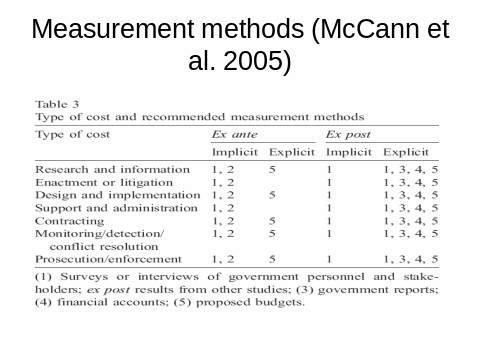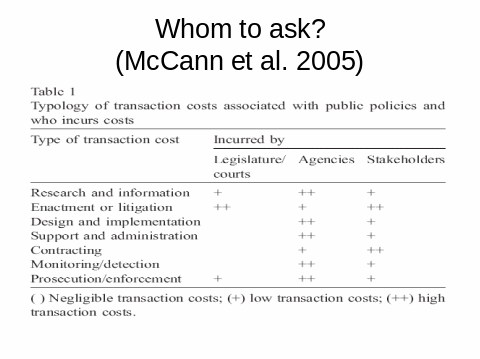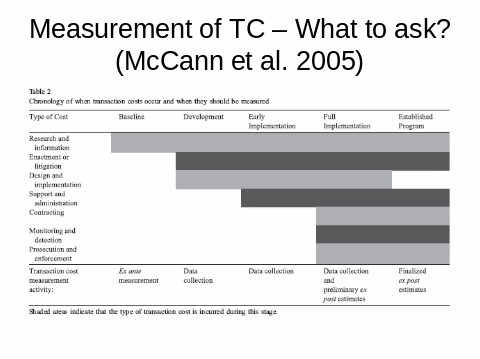My chosen strategy for evaluation of Walt Disney Theme Parks is based on Transaction Cost Economics (TCE). This strategy is best used when a company internationalises on activities or processes that are cost productive on their operations, enabling them to have a cost advantage over the market while deducting on those which are cost deductive to their operations.
The first strategy is the use of auditing as a strategy for evaluation. Auditing is adequate, especially for a firm like Walt Disney Theme Park because, like the TCE, It helps in matters relating to international financial reporting standards. Therefore, the strategy assists firms in evaluating and obtaining evidence regarding the economic status of a given period (Klein & Sykuta, 2010).
The results are that the person in charge is assisted to make an accurate judgment on the steps or changes to make to secure their finances in accordance with the objectives or goals of the firm. Auditing strategy applies to the TCE strategy identified for Walt Disney Theme Parks because they both internationalizes activities or process that have a cost advantage over the market while taking various precautions like subcontracting on processes that are considered as a cost disadvantage to the firm.
The second strategy is contingency planning. This strategy is based on finding solutions to deal with unfavorable events before they occur. Just like the TCE, contingency planning is applicable in Walt Disney Theme Park because it also acts to remedy situations or processes, hence providing accurate information for the person concerned to take appropriate steps that are beneficial for the well-being of a company. Moreover, using the strategy of contingency planning like the TCE provides a firm with alternative plans for both events or processes that are rendered to be cost deductive.
The third approach is The Balanced Scorecard. It is a strategy that works for firms as strategy evaluation or control technique. Similar to the TCE, the balanced score card is used for identifying both financial and nonfinancial measures that are rendered to be cost advantage and cost deductive to firms. Therefore, it is applicable to the TCE strategy selected for use for Walt Disney Theme Parks because through its use, a company is capable of identifying ratios that are useful in measuring processes that are either cost advantage over the market or cost deductive in the market.
The last approach is published sources of strategy evaluation information. This strategy has been highlighted as the strategy is quite effective when applied in the TCE strategy because it works to identify the strengths, weaknesses, opportunities and threats of other competing firms.
Thus, the strategy is important because when thoroughly analyzed, it serves the functions of the TCE strategy as it imparts persons concerned with vital information that are essential to effective decision making that will ensure cost advantage to the firm (David & Greene, 2000).
Quantitative methods will be the selected method for evaluating the TCE strategy that has been chosen for Walt Disney Theme Parks. This method may include the use of methods for measuring transaction cost and the econometric analysis of contracts and organizations. However, for the case of Walt Disney Theme Parks, I will use measurement methods for evaluating the strategy. These measurement methods include the use of indirect measurement and direct measurement.
Under indirect measurement, I will use questionnaires and one on one interviews to determine such qualities like the difference between buying and selling price.
In addition, I will determine observed buyer behavior for products being produced by the firm. On the other hand, for direct measurement, I will use interviews and experiments to evaluate the processes through contracting. In addition, for the budgeting section, I will use techniques such as interviews and accounting. The table below shows how the process may be structured (David & Greene, 2000).



In addition, while conducting the evaluation, a proposed contingency plan will be structured to ensure that the steps and actions taken are sufficient for the long-term benefit of the firm (Diaz, 2006). The action plans taken for this will be as follows.
Each and every transaction will be properly spelled and abbreviated to avoid the problem of definition brought about when conducting an evaluation of TCE strategy.
Each transaction cost will be accurately separated from other expenses, such as production cost to avoid problems brought about due to problems of separation during the evaluation of the TCE strategy.
Transaction cost will be made to be moderate to prevent an evaluator from the problem of missing observations. The problem is always caused when sales cost is high, and observation of transactions always becomes difficult.
Estimation of transaction costs will be appropriate in order to prevent the evaluation process from such errors like problems of subjectivity.
Cost effective tools and processes will be used to avoid the problem of measurement costs which may arise in the process of evaluation because in most scenarios, the measurement value is always discovered to be costly to the firm.
References
David, F., & Greene, A. (2000). 9. In Instructor’s resource manual (instructor’s manual, test bank, lecture notes, transparency masters) to accompany Strategic management, fourth edition, and Concepts of strategic management, fourth edition. New York: Prentice Hall PTR.
Diaz, L. M. (2006). Evaluation of cooperative planning in supply chains: An empirical approach to the European automotive industry. Berlin: Springer.
Klein, P. G., & Sykuta, M. (2010). The Elgar companion to transaction cost economics. Cheltenham, UK: Edward Elgar.